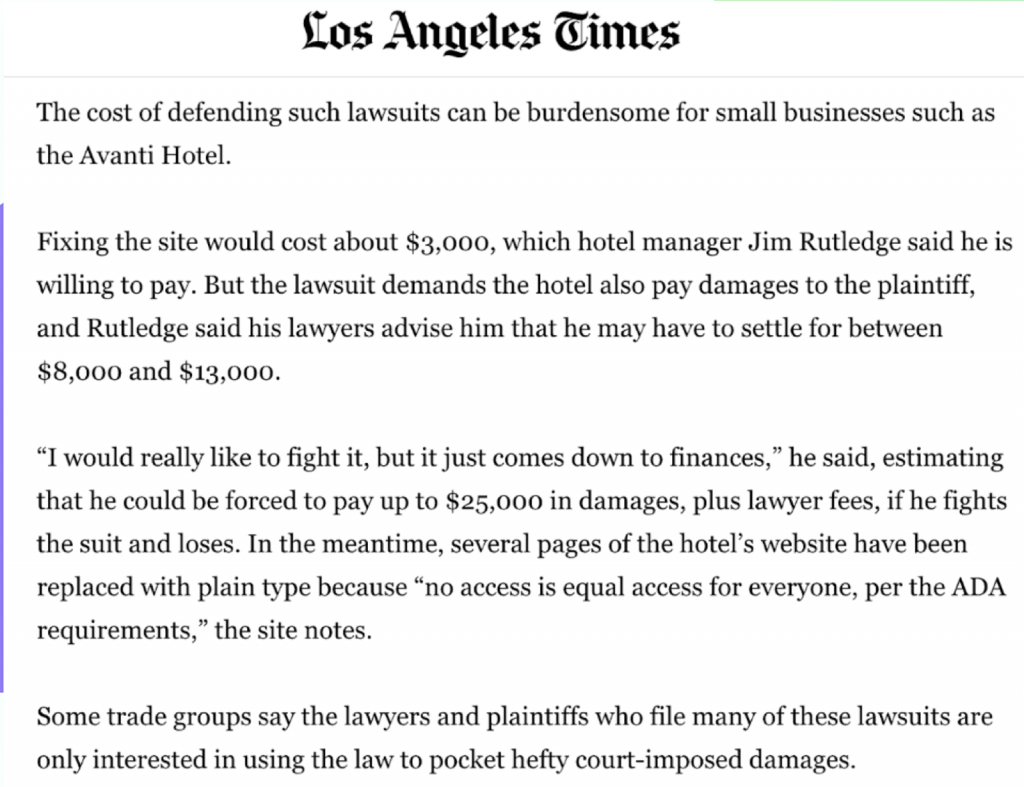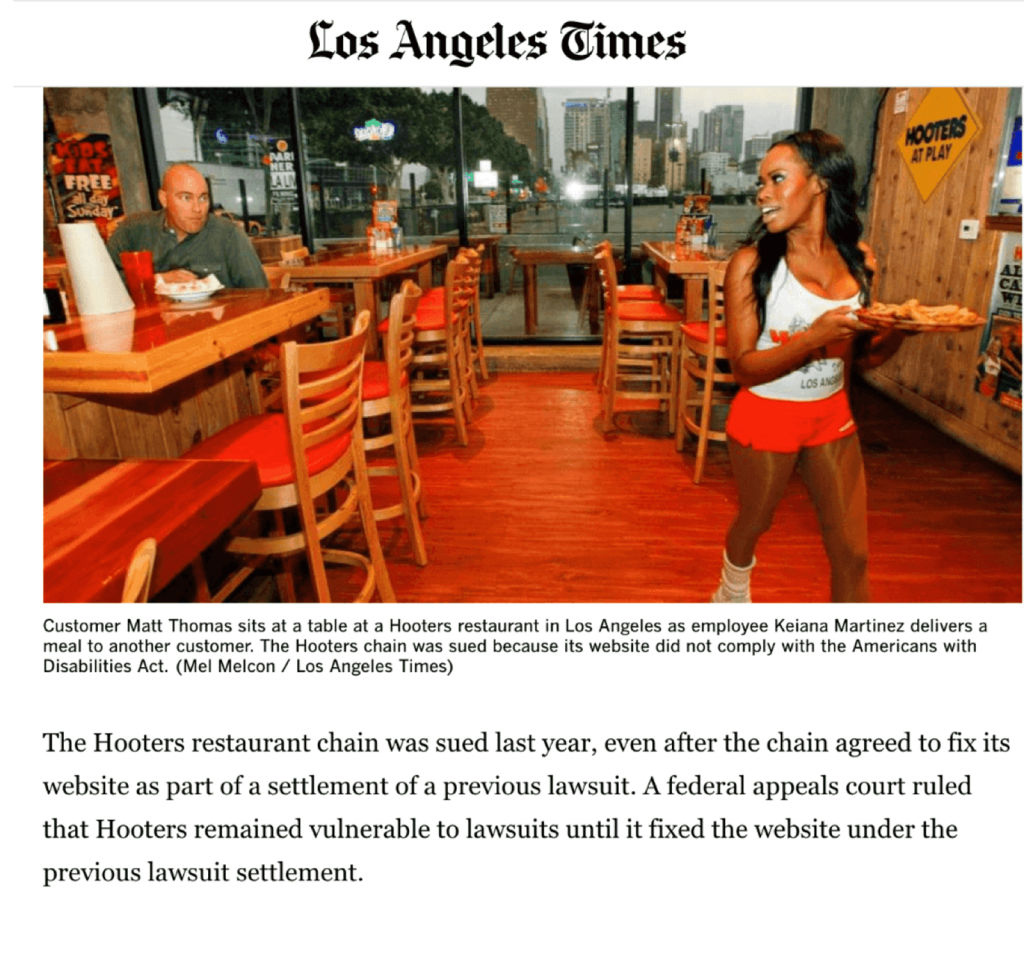Businesses’ must be Compliant with the American Disabilities Act Requirements for its Websites or Face possible law suits
As a matter of fact, a business now must make sure that each image, video file, audio file, and more material on its website are compliant with the ADA.
Ignorance Is No Excuse. If Your Website Isn’t Compliant, You Can Be Sued!
Unfortunately, even if a website/business owner was unaware of the laws governing the Americans with Disabilities Act (ADA) compliance – the business could still end up losing thousands of dollars if it is sued. In fact, many predatory Disability Attorneys have been preying on unsuspecting businesses and website owners over the past year.
Unfortunately, many businesses have been sued because they haven’t fully complied with the 1990 Federal ADA law requiring public places — salons, hotels, restaurants and shops to be accessible to people with Disabilities. Recently, businesses aren’t being sued because of failing to build wheelchair ramps or install handrails — common charges in the scores of ADA lawsuits in past decade, instead, many lawsuits now contend that the business websites can’t be used by individuals having visual and hearing impairments. One such example was a boutique luxury hotel in California, that was forced to settle their case for thousands of dollars.
With online sales, restaurant and hotel reservations in addition to job postings now a huge part of modern commerce, advocates for the Disabled indicate websites must be accessible to all individuals and in compliance with ADA regulations, just like brick-and-mortar stores, restaurants and schools.
For a website to be accessible to disabled individuals, the content must be coded so that screen-reading software can convert the words to an audio translation. All interactive functions must be operable through keyboard commands for individuals who can’t use a mouse. Blinking screens must be able to be stopped for those who suffer from Epilepsy. One such business who got caught with their pants down so to speak was Hooters. Who not only got sued once, but after a judge ordered them to fix their site, a second law suit was filed because the site was not fixed fast enough.
Here are just some of the scary statistics:
- Lawsuits are mounting and are expected to increase…
- The Department of Justice has backed ADA Website Lawsuits
- $7,000,000 was the Settlement Cost of a Recent Case
- $50,000+ is the Average Legal Cost to Small Businesses in an ADA non-compliant lawsuit
- 181% was the Increase in ADA Title III Lawsuits filed in 2018
Below is just a partial list of major US corporations that have been sued because their websites were not ADA compliant:
- Hooters;
- Publix Supermarkets;
- Beyonce;
- Domino’s Pizza Inc.;
- Harvard University; and
- MIT University



